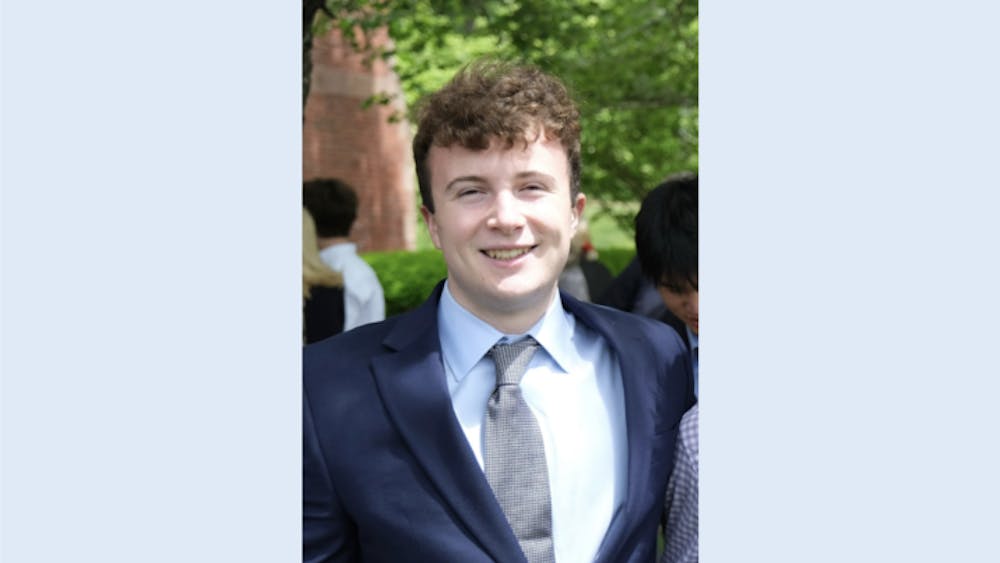Passed in June 2019, a New York law that further decriminalizes the possession of marijuana reflects on the state’s budding potential to become the nation’s 12th state to legalize its recreational use.
Since 2018, Cornell University has been at the forefront of hemp research. The School of Integrative Plant Science in CALS has assembled a multidisciplinary team of researchers who are collaborating with a team of Cornell Cooperative Extension Specialists to establish a nationally recognized program studying industrial hemp.
In a panel on Thursday, experts of different fields examined the past and present of cannabis research. Prof. Carlyn Buckler, integrative plant science, and Paul Larkin from The Heritage Foundation discussed the scientific and legal challenges the cannabis industry faces as it quickly moves from forbidden plant to a formidable business.
Buckler currently teaches PLSCI4910: Cannabis: Biology, Society and Industry, a new Cornell class that explores the history, culture, pharmacology and legal challenges associated with cannabis in an effort to inform and stimulate new ideas toward solving these problems.
The word cannabis comes from the Greek “kannabis,” which means “hemp.” Dating back to 500 B.C., the plant had its origins in Southeast Asia and was used primarily as herbal medicine. When cannabis reached the New World, it was used as an industrial fiber to make rope, fabric and paper.
“Back in the 1700s, if you had land that was farmed, you had to have — by law — at least one acre of it as hemp,” Buckler said. “It was such an important resource for the people coming to the New World.”
Cannabis is a complex plant with over 400 chemical elements. The two that scientists are most familiar with are tetrahydrocannabinol (THC), which produces psychoactive effects, and cannabidiol (CBD), which does not. Due to its long-standing illegality in the United States, scientific research on cannabis has been limited to a few institutions, resulting in a lack of knowledge concerning cannabis’ interaction with the human body.
“I don’t care what anybody tells you; we have no idea what this stuff does long-term, especially THC,” Buckler said. “The majority of the countries who have legalized marijuana have done so in the last eighteen months. We know nothing.”
Buckler said that students often ask her why researchers don’t study individuals who have been smoking marijuana since the 1960s for longitudinal data, to which she responded that there are no scientific controls.
Paul Larkin Jr., a senior legal research fellow at the Heritage Foundation, offered a legal take on the role of marijuana in American society. In terms of legislative decision-making, Larkin said that the general acceptance among individuals is that questions of medicine, biology or genetics must be left to professionals.
“We do not make medical decisions in this country by plebiscite,” Larkin said. “For 80 years now, we have lived with a regulatory structure that trusts [experts] to make these determinations.”
Looking strictly at current legal standards of the pharmaceutical industry, Larkin said that marijuana use would hardly qualify today as a safe and effective drug. For example, cannabis strains are unpredictable, ranging from 5% to 40% THC in a given plant. Furthermore, there is no standard dose, as compared to cannabis’ regulated counterparts.
In order to legalize marijuana, Congress must reevaluate the Controlled Substances Act, which was passed nearly 50 years ago. According to Larkin, Congress should reexamine the Act, because the current system is contradictory under the Supremacy Clause, which establishes that federal law takes precedence over state law.
“The system we have in place now is utterly irrational and nonsensical,” Larkin said. “States have adopted medical and recreational marijuana schemes that essentially create state agencies that give distributors a license to violate federal law and commit federal felonies.”
In response to a student’s question concerning the illegal use of marijuana among an uninformed public, Larkin said that the current legal situation needs to change.
“We have seen very little honest debate over marijuana, we have seen far less of the debate in the legislative halls than we have in forums like this,” Larkin said. “We need to have this debate. We can’t allow the current situation to go on. We need to change that.”

Plant Science Professor, Legal Scholar Talk Obstacles to Hemp Research and Legalizing Marijuana
Reading time: about 4 minutes
Read More









